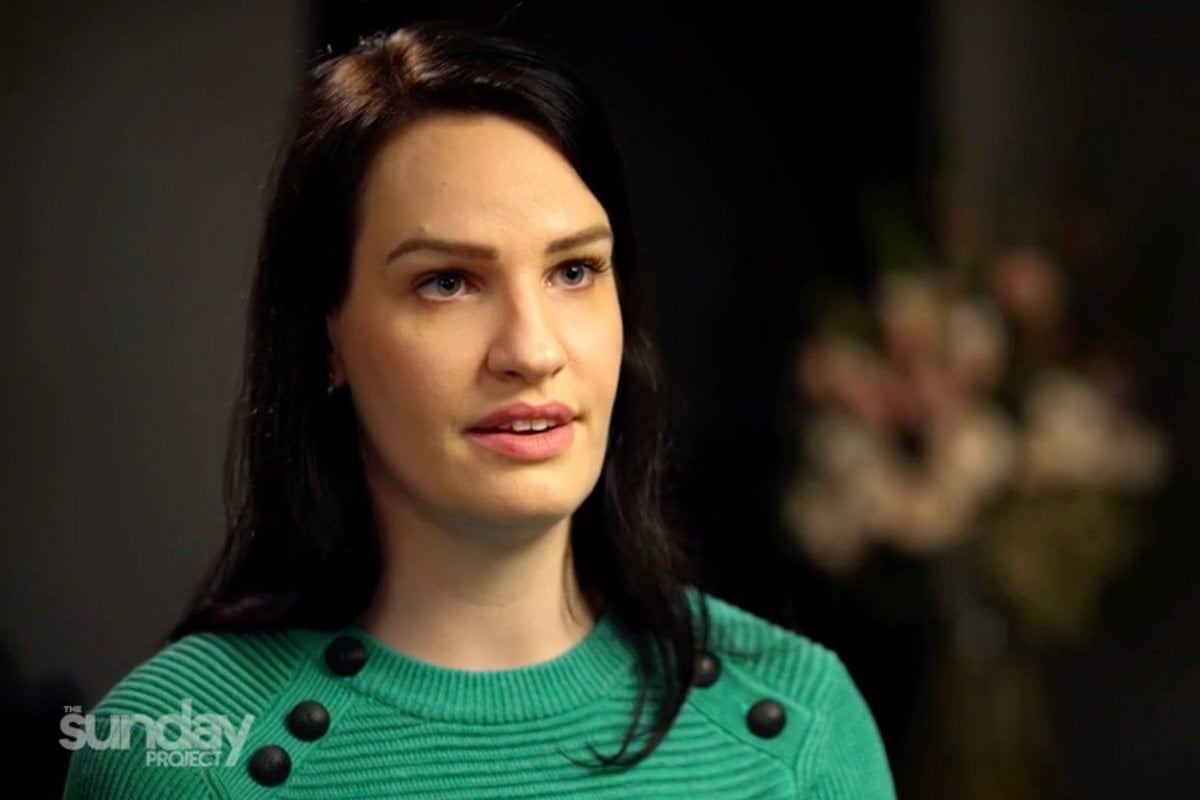
Content warning: This story mentions abuse and assault, and may be distressing to some readers.
Sarah was 21 when she left the cult she was raised in.
"I grew up in an environment that was very heavily influenced by an extreme religious group," she told The Sunday Project.
But even after leaving, some of the teachings ingrained within her followed her throughout her adult life.
"One of my friends summed it up to me that we were never allowed to say no to a man and I think unfortunately that had huge ramifications for me later in my life."
Watch: Sarah speaks to The Sunday Project about modern slavery. Post continues below.
After leaving the cult, Sarah found herself in a string of "problematic" relationships.
"I had to do whatever the man told me to do, I didn’t know anything about consent, I didn’t know that I could say no to things."
She began working as nurse by day and a dancer by night as she worked to pay off approximately $20,000 of debt she had accumulated.
At the time, Sarah felt the thousands of dollars in debt would "bury" her.
Then a friend at the strip club she was working at, told her about an opportunity to work for a man.
